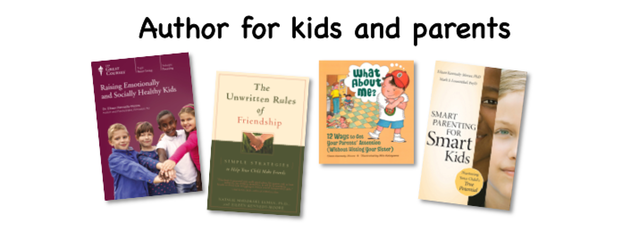Parenting
Soft Criticism
The art of gentle correction -- it's not about offering praise.
Posted April 17, 2014

The instinctive reaction to criticism is to defend: “Well, it’s not my fault… I didn’t know… She did it, too… You did something worse!”
The usual advice is to sandwich criticism between praise, but that doesn’t really soften the blow. The positive comments can seem like meager consolation prizes, and the recipient of the criticism still feels the need to argue and justify the bad behavior.
So, if we want our child, co-worker, or significant other to respond constructively to our criticism, we need to be able to give it in a way that decreases their defensiveness.
Here’s a formula for a soft criticism:
Step 1) Offer an excuse.
If you provide an excuse, the other person doesn’t have to scramble for one. Offering an excuse shows you know he or she is a good person, with good intentions, despite the mistake. For example, you could say, “I know you didn’t mean to…” or “You probably didn’t realize…” or “I understand that you were trying to…” or “I know you’re busy with…”
Step 2) Explain the problem.
This is the part you’ve been waiting for! After you offer the excuse, add a “but” explaining the impact of the person’s action. Stay focused on specific behavior and how it affects you. “BUT, when you [behavior], [negative outcome].”
Step 3) Move forward.
There’s no point in dwelling on what’s past. Instead, talk about what you’d like to happen next. You could say, “From now on, could you please…?” Or, you could get the other person’s help in figuring out how to solve the problem. “What do you think we can do to make sure this doesn’t happen again?”
Be sure to pick a calm moment for your soft criticism. Use a calm and friendly tone, so the other person knows you’re genuinely trying to work things out. If you say these words in a sarcastic or condescending way, they will back fire. A soft criticism doesn’t a guarantee that the other person will hear you, but it’s a caring way to raise concerns.
Related posts:
Preventing Mom Meltdowns and Dad Detonations
10 Ways to Help Children Listen Better
Helping Children Who Cry Easily
__
© Eileen Kennedy-Moore, PhD. Google+
Eileen Kennedy-Moore, PhD, is an author and clinical psychologist in Princeton, NJ (lic. # 35SI00425400). She frequently speaks at schools and conferences about parenting and children’s social and emotional development. www.EileenKennedyMoore.com
Subscribe to Dr. Kennedy-Moore’s monthly newsletter to be notified about new posts on the Growing Friendships blog.

Dr. Kennedy-Moore's books and videos:
-- Have you ever wanted a parenting course you could do at YOUR convenience? Check out this fun and fascinating audio/video series on children’s feelings and friendships from The Great Courses®: Raising Emotionally and Socially Healthy Kids. || Topics include: Teaching Kids to Care; Developing Genuine Self-Esteem; How Kids Manage Anxiety and Anger; Playing Well With Others; Growing Up Social in the Digital Age. VIDEO preview.
On sale 70% off at: www.TheGreatCourses.com/Kids
-- Smart Parenting for Smart Kids: Nurturing Your Child's True Potential || Chapters include: Tempering Perfectionism; Building Connection; Developing Motivation; Finding Joy. VIDEO preview.
-- The Unwritten Rules of Friendship: Simple Strategies to Help Your Child Make Friends || Chapters include: The Shy Child; The Little Adult; The Short-Fused Child; The Different Drummer.
-- What About Me? 12 Ways To Get Your Parents' Attention Without Hitting Your Sister. VIDEO preview.
Growing Friendships blog posts are for general educational purposes only. They may or may not be relevant for your particular situation. You’re welcome to link to this post, but please don’t reproduce it without written permission from the author.
Photo credit: “Fragile Goods” by Steve Winton / CC BY 2.0


